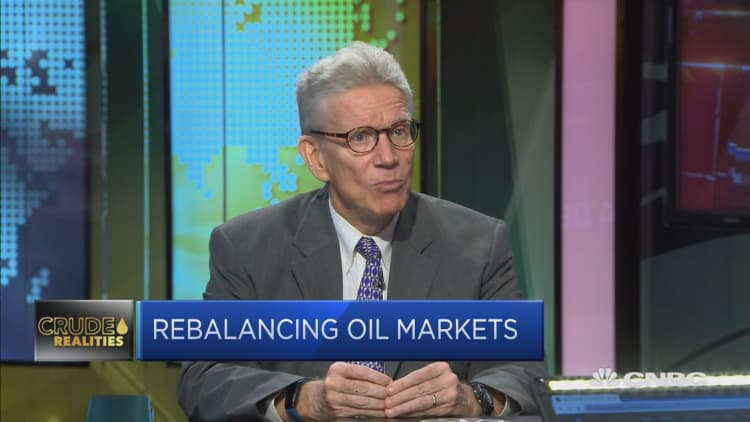OPEC kingpin Saudi Arabia is ill-equipped to prevent a supply shock in the energy market, analysts told CNBC on Monday, as oil traders prepare for the possibility of $100 a barrel before year-end.
"Nobody wants to get caught short, full in the knowledge that more Iranian barrels are poised to be removed from the market," Stephen Brennock, oil analyst at PVM Oil Associates, said in a research note published Monday.
Late last month, President Donald Trump urged OPEC producers to ratchet up production levels to prevent further price rises ahead of the mid-term elections in early November.

The Trump administration's push for the Middle-East dominated cartel to start pumping more oil comes as the White House prepares to impose sanctions against Iran in around five weeks' time. Further to this, Washington is also asking buyers of Iranian oil to slash imports to zero to force Tehran to negotiate a new nuclear agreement.
China reportedly bowing to US pressure
China initially rejected a U.S. request to choke off the flow of petrodollars to Iran but, amid intense pressure from the Trump administration, China is now reportedly taking steps to comply.
China's top state refiner, Sinopec Corp, was seen halving its loadings of Iranian crude in September, Reuters reported Friday, citing unidentified sources.
The prospect of a reduction from Sinopec would constitute a significant blow for Iran. That's because OPEC's third-largest producer considers China to be its leading oil client at a time when European producers and other global buyers are dramatically reducing Iranian crude purchases to avoid U.S. sanctions.
China has consistently defended its energy trade with Tehran — thought to be worth around $1.5 billion a month — as transparent and lawful.
"Against this backdrop of dwindling Iranian oil supplies, the focus will turn to meek levels of global, or more accurately, Saudi spare capacity," Brennock said.
OPEC and non-OPEC producers were initially thought to be reluctant to immediately respond to heightened pressure from the Trump administration, but Saudi Arabia is now expected to put as much as 550,000 additional barrels per day (bpd) onto the market over the next couple of months.
The kingdom has previously claimed to have around 1.5 million bpd available to add to the market if required.
But, Riyadh is thought to be unable to fully offset global supply disruptions over the coming months. And "this essentially leaves the world's only swing producer powerless to prevent a supply shock and subsequent price spike in the final quarter of this year," Brennock said.
$100 a barrel
"We are moving into a world where you have lower inventories, lower spare capacity and less protection for buyers," John Driscoll, chief strategist at JTD Energy Services, told CNBC on Monday.
"So $100 a barrel has become more likely, whether we get there or not, it might be a little early to say," he added.

International benchmark Brent crude traded at around $83.01 on Monday, up around 0.34 percent, while U.S. West Texas Intermediate (WTI) stood at around $73.42, more than 0.2 percent higher.
U.S. sanctions against Tehran are widely expected to have an immediate impact on Iran's oil exports, although the estimates of exactly how much of the country's oil could disappear from November 4 vary widely.
Some energy market analysts expect around 500,000 bpd to disappear once U.S. sanctions against Iran come into force, while others have warned as much as 2 million bpd could come offline over the coming months.


